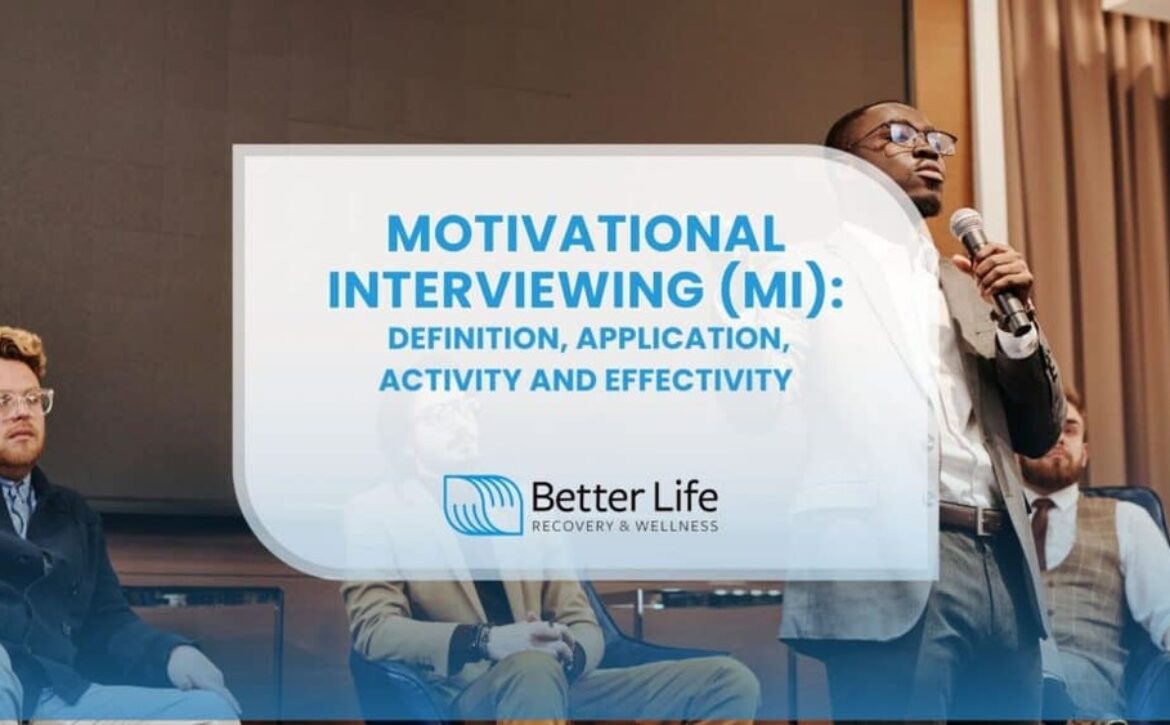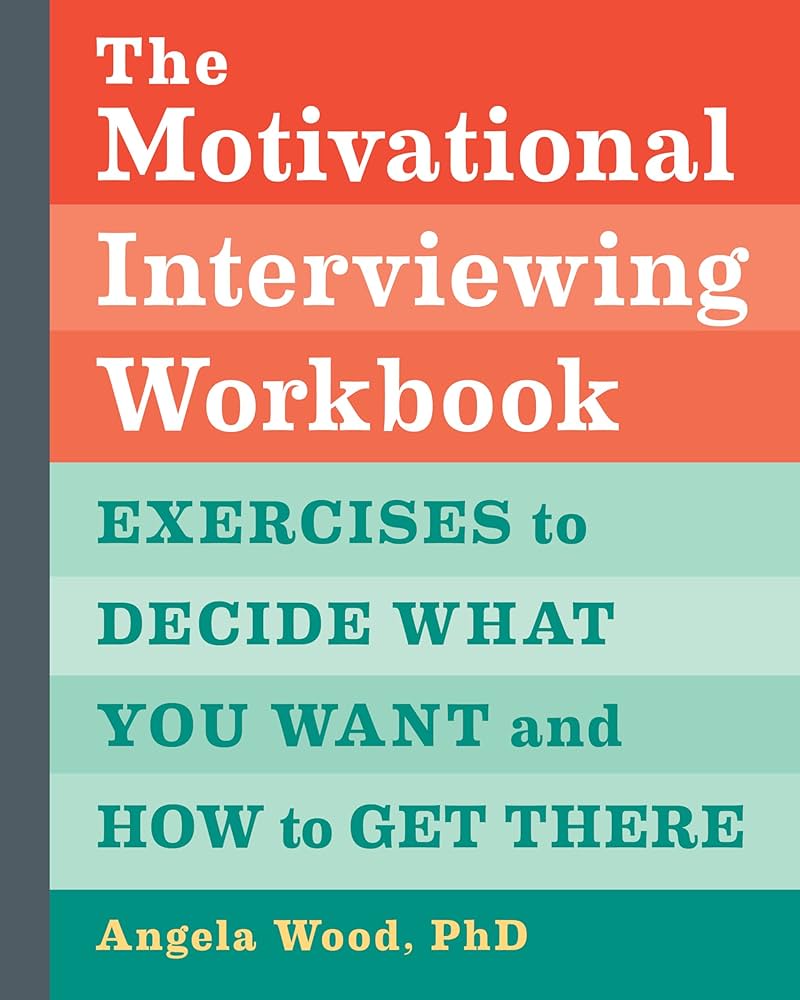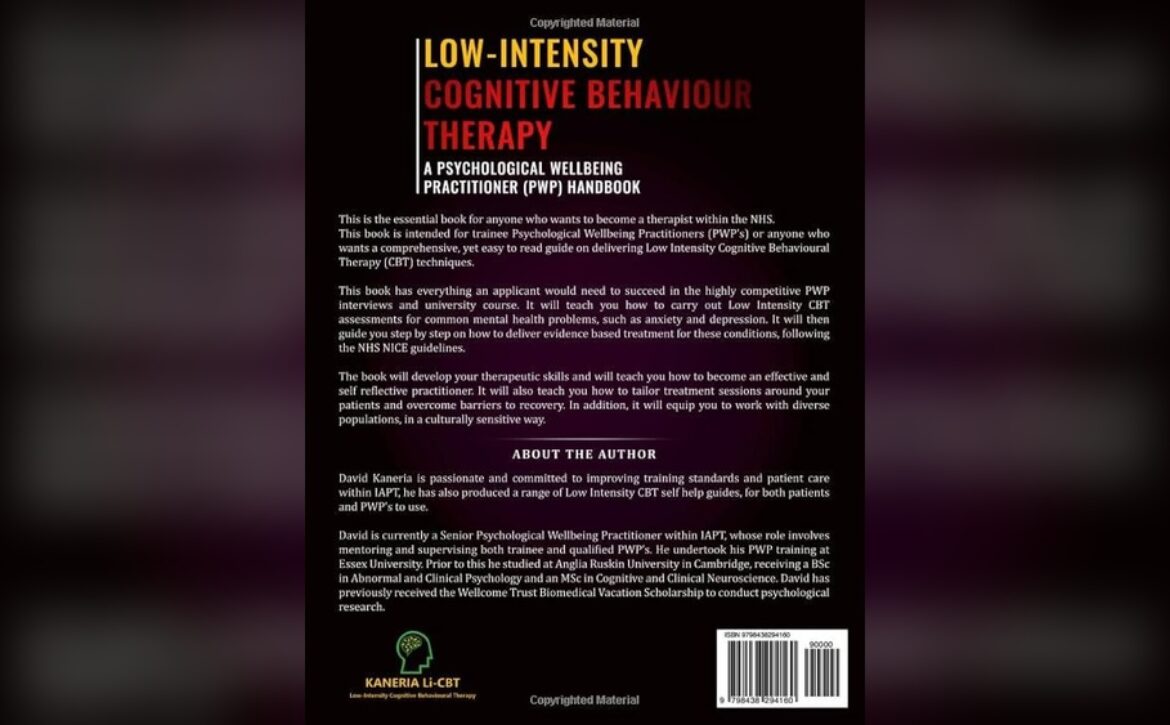
How to Become a Motivational Interviewing Pro: Guide
Are you ready to unlock the power of conversation and inspire change in others? If you’ve ever found yourself wanting to help people make positive life choices, mastering motivational interviewing could be your key to success.
This transformative communication technique isn’t just a skill—it’s an art that empowers you to guide others toward their goals with empathy and understanding. Imagine being able to break through barriers and ignite motivation in those around you. Intrigued? Keep reading to discover how you can become a master of motivational interviewing and make a real difference in people’s lives.

Motivational Interviewing Basics
Discover the essentials of motivational interviewing. Learn to encourage positive change through empathetic listening and open-ended questions. Build trust and guide individuals to explore their motivations and goals effectively.
Motivational Interviewing (MI) is a powerful technique designed to help individuals find their own motivation to change. It’s not just about giving advice or persuading someone to make a decision. Instead, it focuses on understanding and harnessing the individual’s intrinsic motivations. Whether you’re a counselor, coach, or simply someone interested in helping others, learning the basics of motivational interviewing can be incredibly rewarding. Let’s dive into the essentials of MI.
Core Principles
The foundation of motivational interviewing rests on four core principles: expressing empathy, developing discrepancy, rolling with resistance, and supporting self-efficacy. Expressing empathy involves genuinely understanding and reflecting the feelings of the person you are speaking with. It’s about being there for them, not just physically, but emotionally as well. Developing discrepancy is about helping individuals see the gap between where they are and where they want to be. This can motivate them to make a change. Rolling with resistance means avoiding arguments and instead working with the individual’s reluctance to change. It’s about respecting their journey and gently guiding them. Supporting self-efficacy is about building confidence. Help the individual believe they are capable of making the change they desire. How often do you truly listen to someone without jumping in with advice? Reflect on this next time you’re in a conversation.
Key Techniques
Effective motivational interviewing utilizes several key techniques to foster meaningful conversation and inspire change. Open-ended questions are essential. They encourage the individual to explore their thoughts and feelings. Instead of asking “Are you happy with your progress?” try asking “What do you think about your progress so far?” Affirmations are about recognizing the individual’s strengths and efforts. A simple statement like “You’ve shown great resilience in this situation” can boost their confidence significantly. Reflective listening involves paraphrasing what the individual has said to show that you understand. It can be as simple as saying, “It sounds like you’re feeling overwhelmed by this change.” Summarizing helps in reinforcing what has been discussed. It ensures clarity and shows that you have been actively listening. In my experience, when I started using open-ended questions, I noticed people opened up more. They felt heard, and this often led to more productive conversations. Have you ever tried these techniques in your conversations? Give them a shot and see the difference they make.
Building Rapport
Building rapport is the cornerstone of effective motivational interviewing. Establishing a genuine connection with your client is not just about asking questions—it’s about creating a space where they feel heard and understood. This connection fosters trust and openness, paving the way for meaningful dialogue and transformation. Let’s delve into the essential skills that can help you build rapport: active listening and empathy expression.
Active Listening
Active listening is more than just hearing words; it’s about fully engaging with your client. Focus on their words, tone, and emotions. This means putting aside distractions and showing genuine interest in their story.
Consider the impact of asking clarifying questions. This demonstrates your commitment to understanding their perspective. Reflect back what they say to confirm your understanding and show that you’re truly present in the conversation.
How often do you find yourself planning your response while someone else is speaking? Challenge yourself to silence that inner dialogue. Give your client the gift of your undivided attention, and you’ll find that the rapport builds naturally.
Empathy Expression
Empathy is the ability to share and understand the feelings of another. It’s about connecting on a human level, beyond just the surface issues. Expressing empathy involves acknowledging your client’s emotions and experiences without judgment.
Share personal experiences that resonate with your client’s feelings. This can foster connection and show them that they’re not alone. Be sincere in your responses, and avoid platitudes. Authentic empathy can break down barriers and create a safe space for change.
Have you ever felt misunderstood? Imagine the relief when someone truly gets you. Strive to be that person for your client. Let them know their feelings are valid, and watch how this strengthens your rapport.
Building rapport through active listening and empathy expression can transform your approach to motivational interviewing. It’s about connecting, understanding, and fostering a space where change feels possible. Are you ready to make that connection? Your clients are waiting.
Enhancing Communication Skills
Enhancing communication skills is crucial for motivational interviewing. It helps create a bond between the interviewer and the client. Effective communication encourages openness and trust. This leads to better outcomes in motivational interviewing.
Open-ended Questions
Open-ended questions invite more detailed responses. They encourage clients to express feelings and thoughts. These questions are not answered with a simple “yes” or “no.” Instead, they require reflection and sharing. For example, ask “What makes you feel motivated?” rather than “Are you motivated?” This approach helps gather deeper insights.
Reflective Listening
Reflective listening is about understanding and acknowledging what the client says. It involves repeating or paraphrasing their statements. This shows empathy and comprehension. Reflective listening encourages clients to explore their ideas further. It helps them feel heard and valued. This strengthens the communication bond.

Handling Ambivalence
Handling ambivalence is a crucial skill in motivational interviewing. It involves navigating the mixed feelings individuals often experience when contemplating change. These feelings can create a mental tug-of-war, leaving one stuck in indecision. As a motivational interviewer, your role is to guide individuals through this uncertainty, helping them find clarity and direction.
Exploring Discrepancies
People are often unaware of the gap between their current behaviors and desired goals. As an interviewer, you help them explore these discrepancies. Start by asking open-ended questions. Encourage them to reflect on how their actions align or conflict with their values. This reflection can be eye-opening, leading to a deeper understanding of their ambivalence.
Consider a friend who wants to quit smoking but enjoys the social aspect of it. By discussing how smoking affects their health and social life, you help them see the bigger picture. This process can reveal underlying motivations for change.
Developing Strategies
Once discrepancies are identified, the next step is developing strategies. Encourage individuals to brainstorm solutions that align with their goals. Help them weigh the pros and cons of each strategy, fostering a sense of ownership over their choices.
Guide them to set small, achievable steps. If someone wants to exercise more but feels overwhelmed, suggest starting with a ten-minute walk daily. This breaks down the barrier of ambivalence, making change feel manageable.
Ask yourself: what strategies can you offer that resonate with their unique situation? Tailoring your approach can make a significant difference in overcoming ambivalence.
Setting Goals And Planning
Setting goals and planning are essential in motivational interviewing. They provide a roadmap for change, helping individuals to visualize their journey and stay focused. You might wonder how you can create effective goals and plans that resonate with those you are trying to motivate.
Collaborative Goal Setting
Collaborative goal setting is about working together. Picture yourself sitting with someone, not across the table but beside them. You’re not dictating their goals; you’re exploring options together. Ask open-ended questions to understand their aspirations. What do they truly want to achieve? Encourage them to voice their desires and dreams.
Share your insights, but keep the focus on their perspective. Your role is to facilitate, not dominate. Consider discussing what success looks like for them. Are there specific milestones they envision? This approach ensures the goals are meaningful and increases the likelihood of success.
Action Planning
Action planning is where goals transform into tangible steps. Start by identifying small, manageable actions. You might ask, “What is one thing you can do today to move closer to your goal?” This question encourages immediate action and reduces overwhelm.
Break down larger goals into bite-sized tasks. Use tools like checklists to track progress. Consider setting timelines for each action step. How will they hold themselves accountable? You can introduce methods like daily reflections or weekly check-ins.
Reflect on a time when you successfully achieved a goal by planning your actions. Share that experience to illustrate the power of detailed planning. What did you learn from that process that could benefit others?
Think about how you can adapt these strategies to fit different personalities and needs. What works for one person might not work for another. Tailoring plans can make all the difference in motivational interviewing.
Overcoming Challenges
Becoming skilled in motivational interviewing requires patience and practice. Start by building strong listening skills. Develop empathy and ask open-ended questions. These skills help understand others’ motivations better. Practice regularly to gain confidence and improve your technique.
Becoming a motivational interviewer can be a rewarding journey, but it’s not without its hurdles. Overcoming challenges is crucial to effectively support and guide others in their personal growth. Understanding common obstacles and learning how to navigate them can make you a more effective motivational interviewer.
Dealing With Resistance
Resistance is a natural part of motivational interviewing. People may resist change for many reasons, including fear or doubt. As an interviewer, it’s important to listen actively and validate their feelings. Think about a time when you hesitated to make a change. What helped you move forward? Use this insight to empathize with your clients and encourage open dialogue. Instead of pushing against resistance, explore it with curiosity. Ask open-ended questions to understand the underlying concerns. This approach fosters trust and opens the door to meaningful conversations.
Maintaining Motivation
Staying motivated as a motivational interviewer requires self-reflection and self-care. Regularly assess your own goals and motivations to ensure you’re aligned with your purpose. Consider setting small, achievable goals for yourself. Celebrate each milestone to keep your enthusiasm high. This practice not only benefits you but also sets a positive example for your clients. When motivation wanes, reconnect with your reasons for becoming a motivational interviewer. Reflect on past successes and the positive impact you’ve made. This reflection can reignite your passion and commitment. Engaging in continued learning can also bolster your motivation. Attend workshops, read new literature, or join professional groups. These activities can refresh your skills and inspire new strategies for overcoming challenges.
Continuous Learning And Improvement
Becoming skilled in motivational interviewing requires dedication to continuous learning. Start with understanding the core principles and practice regularly. Seek feedback from peers and mentors to improve techniques.
Continuous learning and improvement are essential if you want to excel in motivational interviewing. This approach is not static; it evolves as you grow in your practice. By committing to ongoing education, you ensure that your skills remain sharp and effective.
Seeking Feedback
Feedback is a powerful tool for growth. Regularly ask your peers, mentors, or even clients for their perspectives on your technique. Their insights can highlight areas you might overlook. Consider setting up a structured way to receive feedback. You might use a simple form or a quick debrief after a session. This can help you identify patterns and focus on specific areas for improvement. Don’t shy away from constructive criticism. It can be your greatest ally in refining your skills. Remember, each piece of feedback is an opportunity to enhance your practice.
Engaging In Training
Training keeps you updated with the latest strategies and techniques in motivational interviewing. Look for workshops, webinars, or courses that fit your schedule and learning style. Participating in training sessions can also connect you with other professionals. This network can provide support, share experiences, and offer diverse perspectives. Make it a habit to attend at least one training session annually. This not only boosts your skills but also shows your commitment to professional growth. Are you ready to take your skills to the next level?
Continuous learning and improvement are not just tasks to check off a list. They are ongoing commitments to excellence in motivational interviewing. Keep seeking feedback and engaging in training to stay at the top of your game.

Frequently Asked Questions
What Is Motivational Interviewing?
Motivational interviewing is a counseling approach that helps individuals find motivation to make positive changes. It uses open-ended questions and active listening. The technique is client-centered and collaborative, focusing on exploring and resolving ambivalence. It is widely used in health care settings to encourage behavioral changes.
How Can I Learn Motivational Interviewing?
To learn motivational interviewing, consider taking workshops, online courses, or attending seminars. Engaging with experienced practitioners can also be beneficial. Practice is essential; try role-playing scenarios to build skills. Reading books and research papers on the topic will deepen your understanding and improve your techniques.
What Are Key Techniques In Motivational Interviewing?
Key techniques include open-ended questions, reflective listening, and affirmations. Emphasizing empathy and understanding is crucial. Summarizing conversations helps clarify and reinforce key points. These techniques encourage clients to explore their motivations and ambivalence, leading to meaningful behavioral changes.
Why Is Motivational Interviewing Effective?
Motivational interviewing is effective because it empowers clients to find their motivation. It respects their autonomy and encourages self-reflection. By focusing on clients’ intrinsic motivations, it fosters commitment to change. This client-centered approach builds trust and enhances communication, leading to successful outcomes.
Conclusion
Becoming skilled in motivational interviewing takes time and practice. Start small. Focus on listening and empathy. Learn from each interaction. Over time, your skills will improve. Remember, patience and consistency are key. Keep learning new techniques and strategies. Stay curious and open to feedback.
Your dedication will pay off. Help others find their motivation. Your efforts can make a real difference. Celebrate your progress and keep growing. Motivational interviewing is a valuable skill for many fields. Whether you’re a counselor, teacher, or coach, these skills are essential.
Embrace the journey and enjoy helping others succeed.





